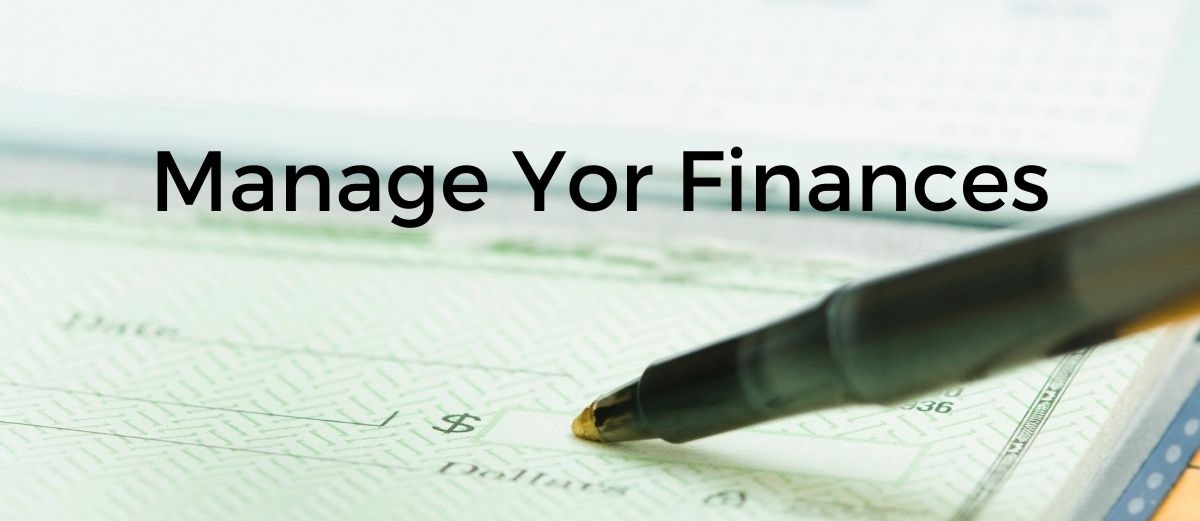 It is a good idea to be prepared for the unexpected when it comes to finances! When you are able to manage your finances you will be able to let go of a lot of stress in your life.
It is a good idea to be prepared for the unexpected when it comes to finances! When you are able to manage your finances you will be able to let go of a lot of stress in your life.
One way to manage your finances is to have an emergency fund. This can help you be prepared for the unexpected.
The best defense against a financial calamity is to have an emergency fund.
Many people mistrust their ability to develop, maintain, and grow an emergency fund. However, the truth is that you can’t afford to be without one.
An auto or home repair, medical bill, job loss, death, or anything else that necessitates a large sum of money on short notice constitutes a financial emergency.
Unfortunately, many people are forced to deal with their problems by using credit cards or taking out loans. In the long run, this only makes the situation more difficult.
Is There a Limit to How Much Is Enough?
 The typical rule is to retain three to six months’ worth of living costs in a liquid account.
The typical rule is to retain three to six months’ worth of living costs in a liquid account.
That is, of course, only a general guideline. The appropriate amount for you will be determined by your unique circumstances.
There are no two scenarios that are the same. These are the questions you need to ask:
- Consider whether or if children are involved.
- How much debt do you have right now?
- What kind of insurance coverage do you have now?
You’ll be able to make an informed judgment regarding the size of your emergency fund based on the answers to these questions.
 The most common reason for needing to use an emergency fund is a sudden loss of income.
The most common reason for needing to use an emergency fund is a sudden loss of income.
Even if you lose your job, you must still pay your bills. Finding meaningful work can take a few months at the very least.
Don’t be caught without a source of income or savings!
It’s usually a good idea to prepare for the worst-case scenario.
Smaller emergencies, such as getting new tires for the automobile, are easier to deal with.
Situations will inevitably arise. It’s just a fact of life.
It’s Fine to Begin Small
Starting small is OK if you don’t currently have an emergency fund or if saving money is tough for you.
 Even a single month’s worth of living expenditures can take a long time to accumulate.
Even a single month’s worth of living expenditures can take a long time to accumulate.
Set short, attainable goals to increase your chances of success.
The most straightforward approach to get started is to create a savings account at your local bank.
This should be a separate account from any other accounts you may have.
Make a habit of depositing on a regular basis. Make a schedule for yourself and stick to it.
Even a weekly budget of $10 or $20 can be an excellent place to start.
Attempt to gradually raise the amount you save each month.
You could want to move those funds into a higher-interest account over time.
Money market accounts and certificates of deposit can be better options if you’ve met the minimum balance requirements.
It is better to be prepared which is always preferable to letting yourself get caught off guard.
 Maintain your discipline and only utilize your money in an emergency.
Maintain your discipline and only utilize your money in an emergency.
It’s not an emergency to go on a vacation or buy new clothing!
Don’t use your emergency money to cover other big bills that aren’t actual emergencies.
Maintaining financial stability requires having an emergency reserve.
It safeguards you and your family in the event of an emergency.
Get started right away! It only takes a little to make a difference.
At some point in their lives, everyone confronts financial difficulties.
You’ll despise yourself for not having made the right preparations if you’re not ready when the time comes.
Prepare yourself for life’s inevitable trials.
Not only will you be able to weather the storm more easily, but you’ll also be able to sleep better knowing you’re prepared.
The Top 10 Ways to Manage Your Finances
 Do you get shivers down your spine when you worry about your finances?
Do you get shivers down your spine when you worry about your finances?
It’s possible that you’re terrified of losing your money.
Your attitude toward money might have a beneficial or bad impact on you.
Fortunately, even if the notion of your finances makes you feel anxious, there are steps you can take to regain control.
These suggestions will assist you in learning how to manage your finances:
Don’t be frightened to take care of your own finances.
If you’re used to having someone else manage your bills, start handling them yourself and making sure you understand them.
Take a day once a month to sit down and review your bills before paying them.
Take out a debt consolidation loan.
 You might want to consider acquiring a consolidation loan if you have a lot of installment loans and credit cards.
You might want to consider acquiring a consolidation loan if you have a lot of installment loans and credit cards.
This loan combines all of your payments into a single monthly payment, saving you money on interest fees.
Make sure you’re saving money on a monthly basis.
Saving 15% of your monthly salary and putting it into an interest-bearing account is a smart rule of thumb to follow.
Start investing your money once you’ve built up an emergency fund that you’re comfortable with.
Think about refinancing your home loan.
You may be able to save thousands of dollars on your mortgage by refinancing while interest rates are lower than when you started your mortgage.
This is especially true if you plan to live in your home for a long time.
Calculate whether refinancing might be beneficial to you.
Make vacation plans ahead of time.
 Joining travel clubs can help you save a lot of money on your trips.
Joining travel clubs can help you save a lot of money on your trips.
This might provide you with a lot more entertainment for your money.
Make wise investments.
It is beneficial to you and your family to invest in your future.
If you’re not sure which investments are best for you, seek expert advice from a financial counselor.
Get separate accounts for Christmas and other special occasions.
Do you ever find yourself short on cash over the holidays?
When you save consistently, a small amount, every month can add up to a lot.
Car repairs may need the creation of a separate account.
 Inspections and other fixes might be expensive.
Inspections and other fixes might be expensive.
When you need to spend money on your car, having a separate account for essential repairs might help ease the financial burden.
Know your credit card’s interest rates and fees.
Pay your bills on time to prevent incurring late fees.
Check with your credit card companies to see if you can get a cheaper interest rate or switch to a different credit card.
Be aware of your tax obligations.
If you can’t handle them on your own, enlist the help of a CPA.
Knowing how to complete your taxes instills a great deal of confidence in you.
How To Manage Your Money (50/30/20 Rule) Video:
It may take some time for you to rethink your money. These tips can assist you and making good decisions.
Only experiment with one strategy at a time. Add another strategy once you’ve become acclimated to the first.
If you require additional assistance, you may wish to employ a financial planner to assist you with the complexities of how to manage your finances.





